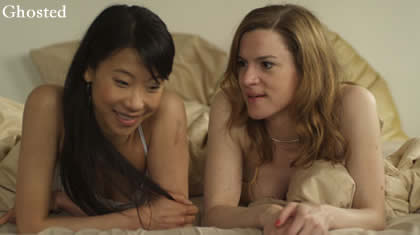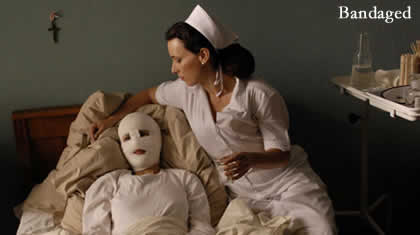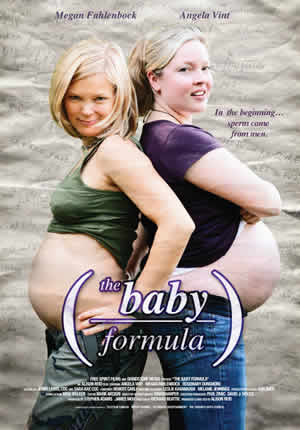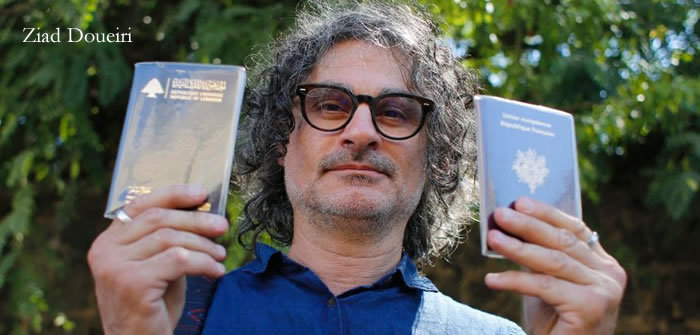 Kimberly Yutani is the Director of Programming at Outfest. In addition to programming Outfest: the Los Angeles Gay and Lesbian Film Festival, she oversees programming for Fusion: the Los Angeles LGBT People of Color Film Festival, the year-round screening series Outfest Wednesdays, and Access LA. She is also short film programmer for the Sundance Film Festival, and was recently was a guest programmer for Cinemasia, an Asian film festival in Amsterdam. She has served on juries at the Toronto International Film Festival for the Short Cuts Canada Award, the Berlin International Film Festival for the Teddy Award, and the Palm Springs International ShortFest. Prior to her film festival work, Kimberly was a film critic and freelance journalist focusing on independent film.
Kimberly Yutani is the Director of Programming at Outfest. In addition to programming Outfest: the Los Angeles Gay and Lesbian Film Festival, she oversees programming for Fusion: the Los Angeles LGBT People of Color Film Festival, the year-round screening series Outfest Wednesdays, and Access LA. She is also short film programmer for the Sundance Film Festival, and was recently was a guest programmer for Cinemasia, an Asian film festival in Amsterdam. She has served on juries at the Toronto International Film Festival for the Short Cuts Canada Award, the Berlin International Film Festival for the Teddy Award, and the Palm Springs International ShortFest. Prior to her film festival work, Kimberly was a film critic and freelance journalist focusing on independent film.
Jon Korn is a Programmer for Outfest 2009: The 27th Annual Los Angeles Gay & Lesbian Film Festival. He is also a Shorts Programmer for the Sundance Film Festival. Previously, Jon worked as an Associate Programmer at AFI FEST and as Associate Creative Producer for CineVegas. He is the Co-Creator of the Echo Park Time Travel Mart.
Bijan Tehrani: Tell us about Outfest. This is the first time we’re doing an in-depth article on the festival. What is outfest about?
Kimberly Yutani: Outfest is the Los Angeles Gay and Lesbian Film Festival. We’re in our 27th year and we show films that range from U.S. features, International Features, Doc Features. We show about ten short programs and we have a whole array of panels and special events.
Jon Korn: A whole section of our festival is for International Dramatic Features. We also have many international films that are in our documentary section and in our shorts programs.
Bijan: Will you please tell us a bit about some of the International films at Outfest 2009?
Jon: Sure, several have already played, but let me tell you about some of the ones that are coming up. Going into the second weekend we have a bunch of very great foreign films. On Friday night, we are showing a film called To Faro, which is German. It’s sort of a different take on the Boys Don’t Cry phenomenon of a woman trying to pass as a man, picking up another woman (laughs).
Kim: We also are showing two other German produced films. Monika Treut has a new feature film. She has been working in documentary for at least the last 8 years. She has a new film called Ghosted which takes place partially in Taiwan and the other part takes place in Hamburg. And then we are sharing another film called Bandaged which is sort of a tribute to 60’s European Horror. It’s quite reminiscent of the Georges Franju film Eyes Without a Face.
Bijan: Wow!—and I say that because I’m a fan of Georges Franju. Do you have any international guests at the festival?
Jon: Monika will be here for Ghosted. Saturday night we have a series of screenings to do at the Ford Amphitheatre here in Los Angeles, which is an outdoor screening area. On Saturday night we are  showing a Canadian film called The Baby Formula about a Lesbian couple that both get pregnant; all of the filmmakers and some of the cast will be there for that.
showing a Canadian film called The Baby Formula about a Lesbian couple that both get pregnant; all of the filmmakers and some of the cast will be there for that.
Kim: Also, we are showing a film called Greek Pete from the UK and the director of that, Andrew Haigh, is here in town. And we are also showing a British film called Mr. Right and the director of that, Jacqueline Morris, is here. And a lot of our International short-filmmakers made the trip as well and that’s really exciting.
Bijan: Is there any chance for audience members to meet with directors and cast members by attending Q&A; sessions?
Jon: Absolutely! We have Q&A;’s throughout the festival. We have either directors, writers, producers or cast members or any of the people available for the feature or short that we are showing.
Kim: The way that our festival is structured, all of our filmmakers are very accessible. If you attend a screening and stick around for the Q and A, many of the filmmakers—all of the filmmakers in fact—  are very open to talking to audience members. That’s definitely their goal in coming to Outfest: to connect with the audience.
are very open to talking to audience members. That’s definitely their goal in coming to Outfest: to connect with the audience.
Jon: Yeah, we’re lucky enough to be hosted by the Director’s Guild of America. They have a beautiful space so that the lobby of this building, for the past weekend and throughout the rest of the week, is filled with schmoozing and hobnobbing and elbows rubbing and such-sort.
Kim: We also throw a lot of parties attached to our films and we do a lot of filmmaker events so that the filmmakers are meeting each other and festival patrons.
Bijan: How is the presence of American Independent Cinema at the festival?
Kim: Great! We do a festival screening called Four in Focus where we choose four first time feature-directors who are U.S. based to highlight them. The four films are Drool by Nancy Kissam, Fruit Fly by H.P. Mendoza, Hollywood, je t’aime by Jason Bushman , and We are the Mods by E.E. Cassidy.
Bijan: Are there any other events that are interesting in the festival that you would like to mention?
Kim: We’re doing a retrospective on Strand Releasing, who are in there twentieth year of business. As you probably know, they’ve had a reputation of acquiring a lot of international films and we are screening some highlights from the Strand catalog from the last 20 years on the big screen.
Bijan: Great! Where are the screenings held?
Jon: We have seven venues throughout Los Angeles. So we do use the Director’s Guild of America Theatres. We use the Ford Amphitheater, as we mentioned. Our opening night was at the Orpheum Theatre, which is a beautiful old theatre in downtown Los Angeles. We also used the Regency Fairfax, which is right in the middle of Hollywood and the Redcat Theatre. It’s a part of the Walt Disney Complex downtown, that beautiful Frank Gehry building.
Bijan: Is there an award ceremony at the end? Do you give any awards to any of the films?
Kim: We do! We have an award ceremony on Sunday the 19th, the last night of the festival. There are seventeen awards, and one of the awards is the Jury Prize for International Features.

